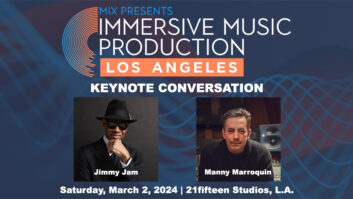IFPI (International Federation of the Phonographic Industry), which represents the recording industry worldwide, with some 1400 members in 66 countries, has published its Digital Music Report 2012.
The good news? Digital music revenue increased globally by eight percent to $5.2 billion in 2011, the first year-on-year increase since IFPI started measuring digital revenues in 2004.
The bad news? The total market value fell to $16.2 billion, from $16.7 billion in 2010, a three percent drop in total trade. That is at least better than the previous year, when there was a roughly eight percent drop in trade value.
According to IFPI estimates, customers purchased 3.6 billion combined album and singles downloads globally in 2011, an increase of 17 percent from 2010. Digital album volume sales grew by an estimated 24 percent globally in 2011. Single track sales were up in many major markets, increasing by eight percent of volume in the U.S., 10 percent in the U.K. and 23 percent in France.
The top-selling single, with more than 12.5 million copies sold, was “Just The Way You Are” by Bruno Mars. Mars also had the #2 and #10 best sellers of the year, with “Grenade” and “The Lazy Song” respectively. Rounding out the top 10 list, in descending order of sales: LMFAO (“Party Rock Anthem”), Jennifer Lopez (“On the Floor”), Adele (“Rolling in the Deep”), Lady Gaga (“Born This Way”), Pitbull ft. Ne-Yo, Afrojack & Nayer (“Give me Everything”), Black Eyed Peas (“The Time (Dirty Bit)”) and Maroon 5 (“Moves Like Jagger”).
Digital music sales globally now account for approximately 32 per cent of record company revenues, an increase from 29 per cent in 2010. Revenue from digital channels now accounts for more than half of the total in some countries, such as the U.S. (52 percent) and South Korea (53 percent).
During 2011, iTunes opened for business in 28 new markets, Spotify launched in the U.S. and four European countries, and is now in a total of 12 countries, and Deezer launched in 25 European countries and expects to be in 80 countries globally by the end of February. Sony’s Music Unlimited is now in 13 countries and, in December 2011, rara.com, which has appointed Imogen Heap as an associate editor on its Music Advisory Board, announced a new streaming service in 20 countries.
The number of paying subscribers for music services globally rose by 65 per cent to over 13.4 million in 2011, from an estimated 8.2 million in 2010. In Sweden, home of Spotify, subscription accounted for 84 per cent of digital revenues in the first 10 months of 2011.
Piracy continues to plague the industry, according to the report, which estimates that 28 per cent of internet users globally access unauthorized services on a monthly basis. Approximately half of these are using peer-to-peer (P2P) networks, according to IFPI, while the other half are using other non-P2P unauthorized channels. The report quotes research from 2010 by The NPD Group in the U.S. that found that just 35 per cent of P2P users also pay for music downloads. P2P users spent an average of $42 per year on music compared to $76 by those paying to download, and $126 among those who subscribe to a music service.
Download and read the report in full:
www.ifpi.org/content/library/DMR2012.pdf
Good news? Bad news? What do you think this means for the industry? Share your thoughts in the comments section!







